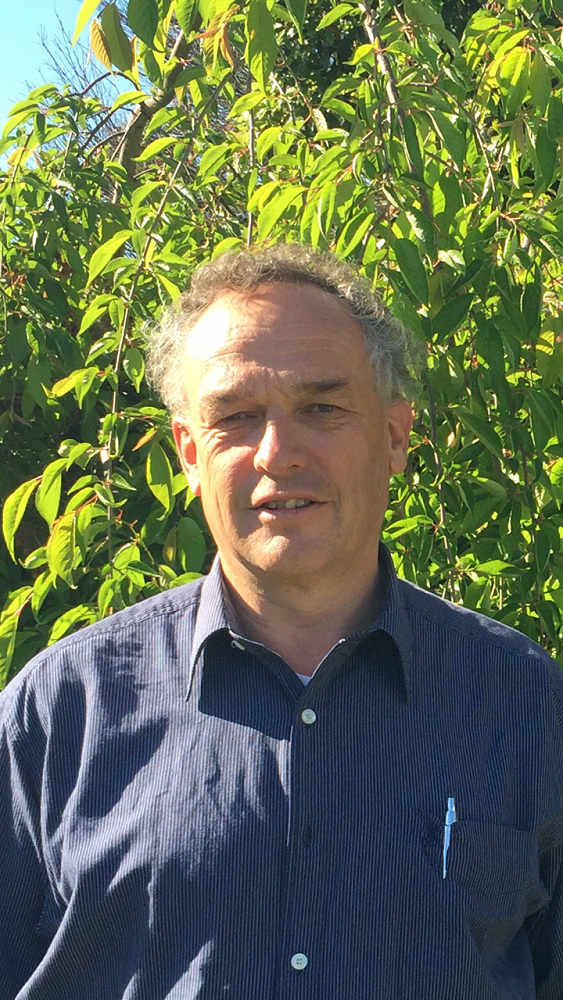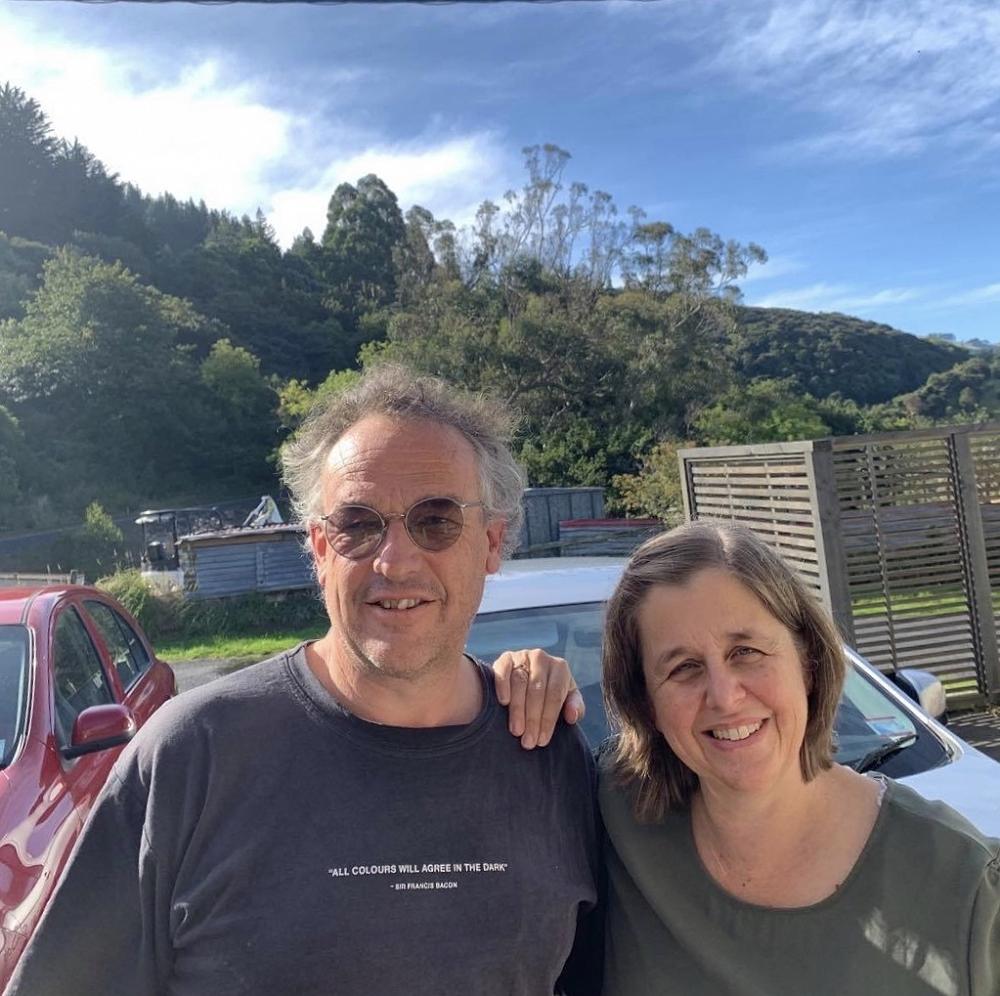
A virus, wide open spaces, serendipitous journeys; Reflections from a traveller....
Our Diocesan Ministry Educator – Ven Michael Godfrey - reflects on a complicated journey to Southern Africa and back again. What was meant to be an ordinary trip became very challenging...
As Anne van Gend and I sat down at our dining room table last night, too tired to eat but thankful to be home, we rejoiced in life’s rich tapestry. Let’s not trivialize coronavirus here: the world is in a serious wobble. But sometimes the cosmic experience is incomprehensible, and we can relate only to the personal. We had somehow escaped the dark sides of potential calamity, and against shortening odds had made it home.
Forgive, please, my personal account. As a writer and a speaker I have long emphasized God’s footprints in apocalyptic times. I have long emphasized that faith is not an insurance policy against tough times. Believers suffer, survive, fail to survive. Lunatic fringes of faith see God as some kind of magician who will flick the faithful out of times of trial and leave the rest to misery. Such a God is not the God of the Cross. The God of the Cross is bigger than our suffering, but is not a magician flicking some out of and some into the trials of being. I’m not sure of the words to describe God’s methodology. In the last two weeks as Anne and I traipsed on the edge of what will be calamitous times for some I was painfully aware that most of God’s world is experiencing or will experiencing suffering far greater than the inconveniences that were closing in on us. These, I kept saying to those around me, are strange times.
Let me explain. Before Christmas Anne and I had booked to attend a conference in Johannesburg. We had decided to give ourselves a few days holiday as well as the work (conference and other) commitments. As it happens the conference was cancelled, not because of a thing called coronavirus, but because of the crisis in the key speaker’s own life. But insurances did not apply, our tickets were non-refundable, and we elected to keep going, using the time to network and conference with representatives of South African Anglican schools and dioceses, to learn what we could from their post-apartheid world. We learned much, but that’s not my story here.
As the time approached the news became more and more saturated with information of this spreading virus. Its gravity became more and more serious. But there were no indications that matters would escalate in the way they did. Precautions about hygiene and personal space protections were issued, and our plans fitted well enough within the changing parameters. Wash carefully, cough carefully, change a few personal and liturgical practices to ensure safety. As we boarded our flights, Dunedin, Auckland, Singapore, Johannesburg there was a little more chatting about these issues, a few extra notices, perhaps a few more masks – generally considered to be ineffectual in restricting the spread anyway. Pretty much on a par with SARS and swine ’flu (remember that?). We winced when someone on a nearby seat coughed too much, but that was about all. Oh, and sanitizer, sanitizer, sanitizer. More important, soap, soap, soap. Two Lord’s Prayers for each handwash.
On arrival in Johannesburg little had changed. Meetings went ahead, handshakes (remember them?) still happened. Sanitizer, sanitizer, sanitizer. After two days of meetings we flew south to Grahamstown, inland from Port Elizabeth. Tourist spots were emptying out, though. More meetings, fewer handshakes, more namaste. As it happens, I remember distinctly my last handshake, in the cathedral in Grahamstown, after praying the office with local clergy and youth. Suddenly it seemed wrong. Namaste and elbow bumps were the order of the day. Did I mention sanitizer?
We flew back to Johannesburg and down to Cape Town. More meetings. Namaste and elbow bumps. Work and family now. But suddenly the reference points were changing, Every conversation was an allusion to coronavirus. We were with family now, discussing our differing circumstances; some were in communal living, some were immuno-compromised, all were concerned. By and large Anne and I were buffered from risk now: a gated community, careful spatial awareness, hands strictly away from others’ hands, and from our own faces; the two metre rule was beginning to dominate. But we were going bush, off grid. There were no travel warnings, and we were to be well away from humanity. I spent a day hiking on Table Mountain, and the next we headed up country, and, as it happens, off-grid. We spend three days travelling, far from communication towers, far from most human beings, immersed in rugged, ancient landscapes, baked by an African sun. Hundreds of kilometres of dirt roads: happy educator! And we arrived back on grid and all hell broke loose.
South Africa was closing its borders. Our flights out were cancelled. We still had limited phone access, and in any case airlines were restricting access to those travelling in the next 48 hours. We weren’t, and we were still a couple of hundred kilometres from Cape Town and contact with the outside world.
We made our way back, as planned, the following day. Eventually Anne was able to get through on the air line help lines. Yes, our flight was cancelled, or at least the Johannesburg to Perth leg was. No there was no other flight available. We had no choice: Air New Zealand re-scheduled us to April 17th. It would be a long stay in Johannesburg in Cape Town.
The president of South Africa, Cyril Ramaphosa made some powerful statements in an address to the national – far more rational than those that were being made by another president in a large northern hemisphere nation at the time (and since). But no presidential address to the nation could cover the fact that South Africa is a nation ill-equipped to fight a pandemic. And, should we get sick, we would be at the mercy of a somewhat challenged health infrastructure. When the virus reached the townships, crowds of humanity without running water, with compromised sewerage, with limited education, all hell would break loose – it still will. And in any case could we in all conscience continue to be a drain either on our personal hosts’ grace or the grace of the nation we were travelling in? We elected to forfeit our Air New Zealand bookings, and rebook with Singapore Airways.
And Singapore closed its borders.
Suddenly the language of border closure was sounding deeply ominous. Shades of the language of wartimes – circumstances utterly beyond our control. We were assured Singapore would reimburse our fares … sometime. There remained only two airlines that could get us out of the country: Qantas and Emirates, and both were cancelling rapidly.
So we managed to get a flight out of Cape Town to Dubai, and another vis Sydney to Christchurch. Bookings made, we made our way to cape Town airport: that flight, too was cancelled. And now Jacinda was announcing a lock down. Urgent phone calls, please with our bank to facilitate credit extensions, phone cards running out, more borders closing. For two hours we wrestled with the odds. In the end we secure two seats on the last plane out of Dubai – and only as far as Melbourne. Online as we flew we found a flight from Melbourne to Christchurch, the last before the lock down. In Melbourne authorities baulked at letting Anne re-enter New Zealand – she has Australian citizenship, and was not allowed into Australia for the same reason. Flurries of calls to the New Zealand consulate. And finally we made the flight – QANTAS, as it happens, whose compassion for the New Zealanders on board – there were no other nationalities – was exemplary. We fist bumped as we touched down in Christchurch, and were collected by a son who drove up from Dunedin to fetch us. We rotated driving all the way home, fatigue was otherwise going to wipe us or someone else out.
And we were the lucky ones. Heavily out of pocket, but who cares. We left behind the masses in South Africa for who the coming months will be a nightmare of crumbling infrastructure. We watched as our Emirates plane took off again heading back to Dubai with only crew on board, crew who would have no job once they land in Dubai, and many of whom will not be able to get home as Emirates crews hail from all around the world, and the UAE borders were closed. Many had to spend far more thousands of dollars than we did to get home – or nearer home. Those at Melbourne who were transiting through New Zealand to the UK and USA who were told they could not board their flight.

We’ve made it. Dunedin has turned on a beautiful day. As far as we know we have no virus – though time will tell. But across our lives and across the glove there are countless worse off than we are. I have as yet no words or theological insights. We’re here, and will take time to work it out. We have seen countless acts of kindness around us and to us in recent days. Perhaps for now that will be the theological insight. But these, like every apocalyptic time, are interesting times, and the onus is on us to find and affirm the God in whose footsteps we are placing ours, no matter what.
